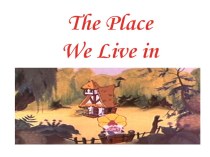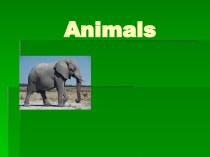- Главная
- Разное
- Бизнес и предпринимательство
- Образование
- Развлечения
- Государство
- Спорт
- Графика
- Культурология
- Еда и кулинария
- Лингвистика
- Религиоведение
- Черчение
- Физкультура
- ИЗО
- Психология
- Социология
- Английский язык
- Астрономия
- Алгебра
- Биология
- География
- Геометрия
- Детские презентации
- Информатика
- История
- Литература
- Маркетинг
- Математика
- Медицина
- Менеджмент
- Музыка
- МХК
- Немецкий язык
- ОБЖ
- Обществознание
- Окружающий мир
- Педагогика
- Русский язык
- Технология
- Физика
- Философия
- Химия
- Шаблоны, картинки для презентаций
- Экология
- Экономика
- Юриспруденция
Что такое findslide.org?
FindSlide.org - это сайт презентаций, докладов, шаблонов в формате PowerPoint.
Обратная связь
Email: Нажмите что бы посмотреть
Презентация на тему Технологическая карта педагогической мастерской Жилища людей трех континентов . Презентация для 9 класса.
Содержание
- 2. MachiyaThe wooden houses where merchants lived and
- 4. A yurtIn Kazakhstan people keep goats. Because
- 6. Stilt housesIn Asia there is a lot
- 8. PalaceA palace is a grand residence, especially
- 10. Europe An igloo, an izba, chalet, a block of flats
- 11. IglooIn the Arctic it is very
- 13. ChaletIn Switzerland there is a lot of
- 15. IzbaAn izba is a traditional Russian countryside
- 18. Block of flatsIn big cities land is
- 20. North America A tipi, wigwam, Victorian house, a skyscraper
- 21. Teepee Before settlers from Europe arrived
- 24. WigwamIt is a domed room dwelling used
- 27. Victorian houseIn the United States, 'Victorian' architecture
- 29. SkyscraperThe word "skyscraper" originally was a nautical
- 31. Скачать презентацию
- 32. Похожие презентации
MachiyaThe wooden houses where merchants lived and worked that a space in front for a store, in the middle for family quarters, and behind for workshops and warehouse. They are the long, narrow houses arranged in
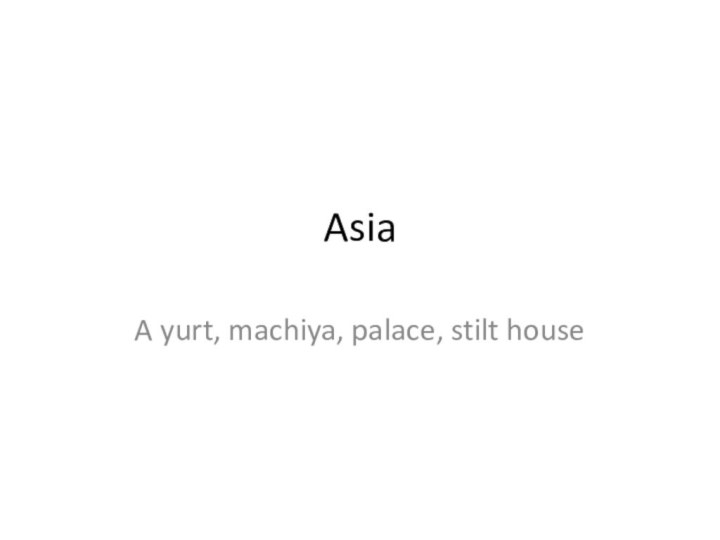
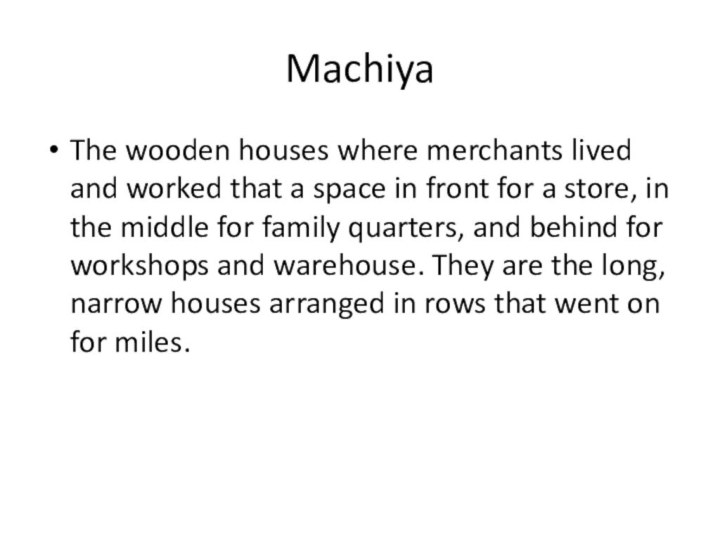
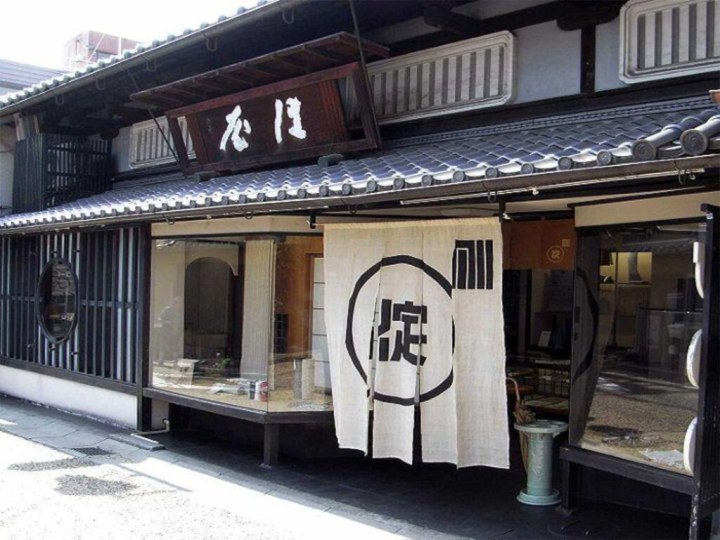
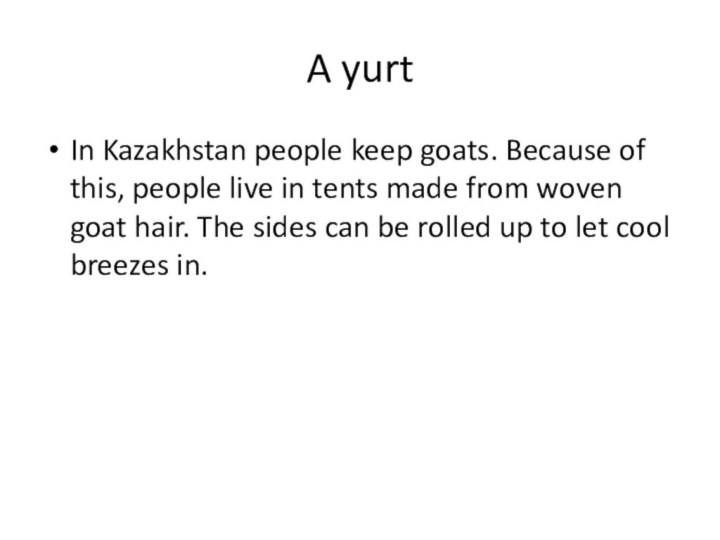
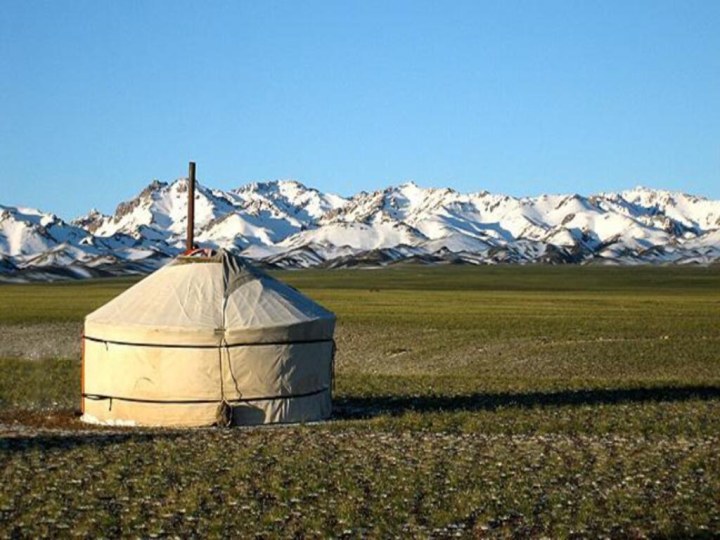
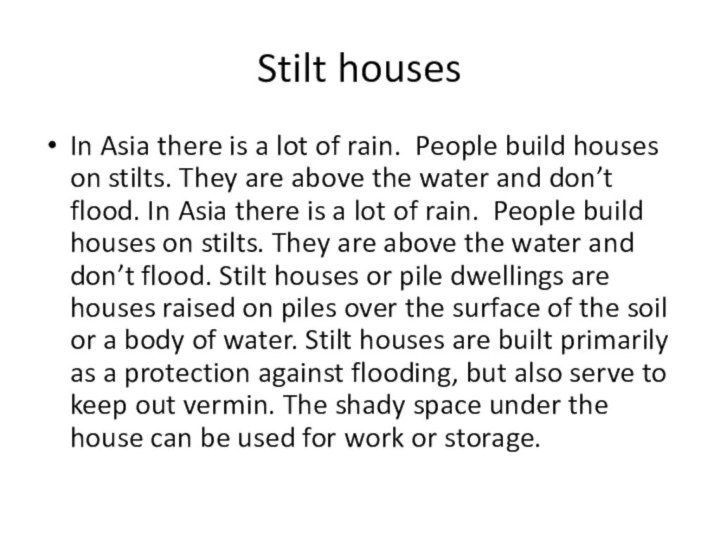
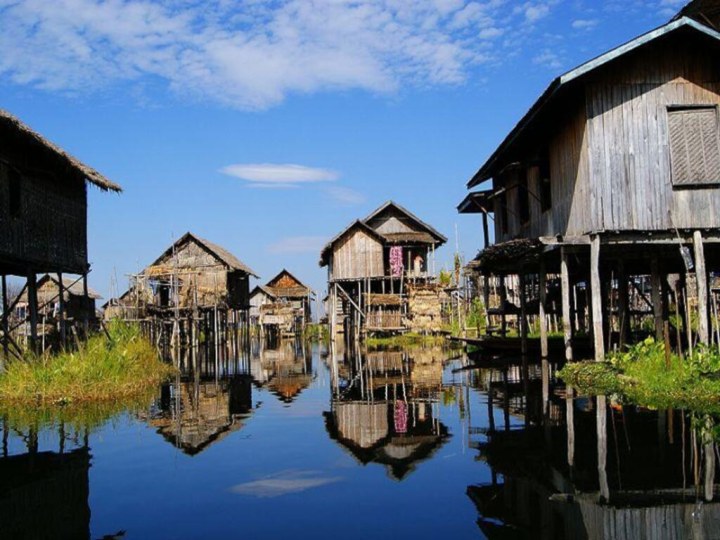
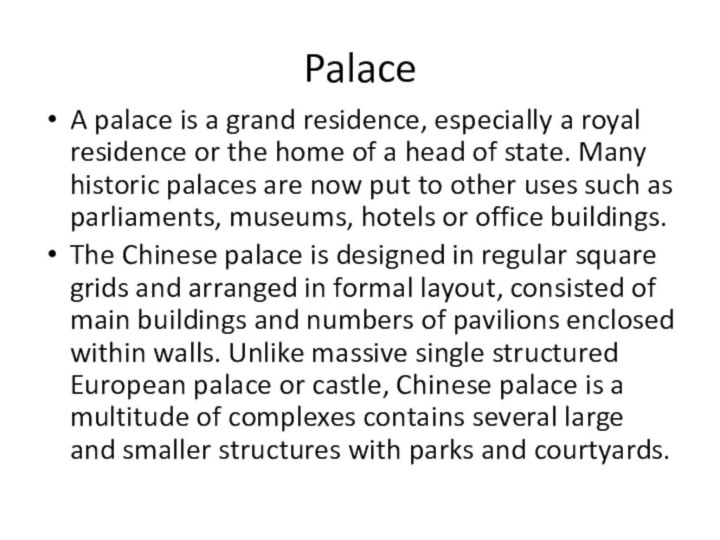
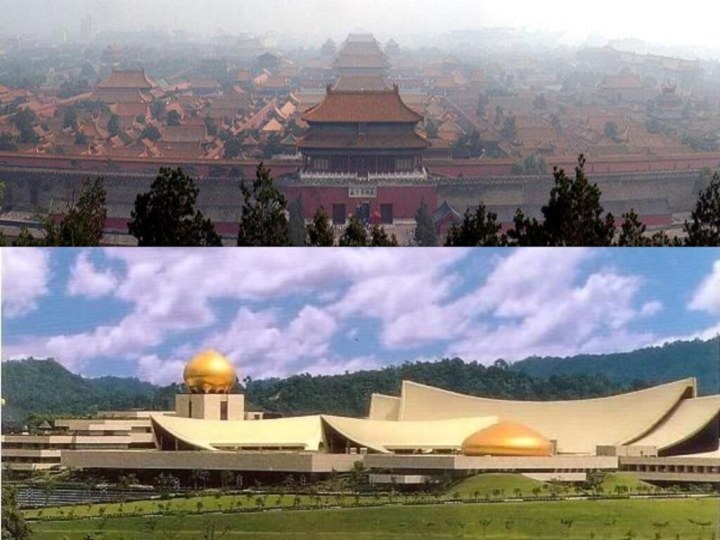
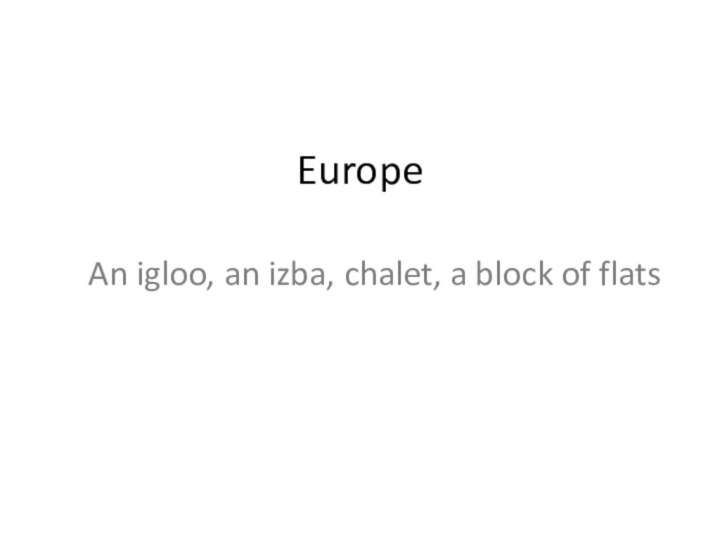
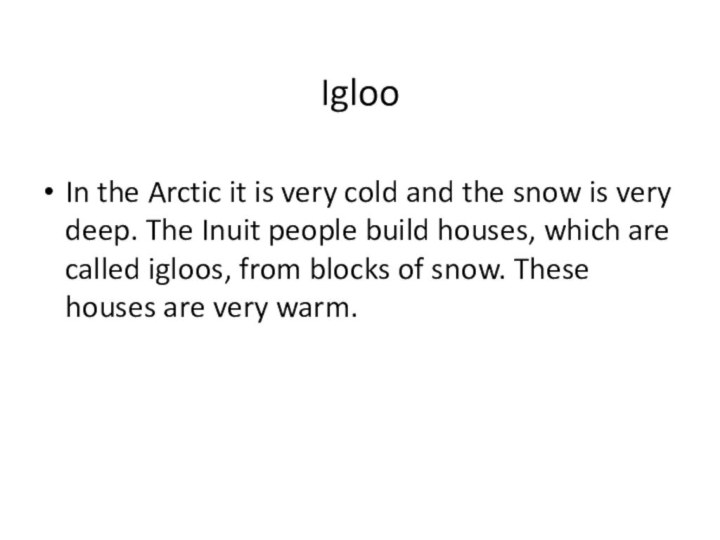
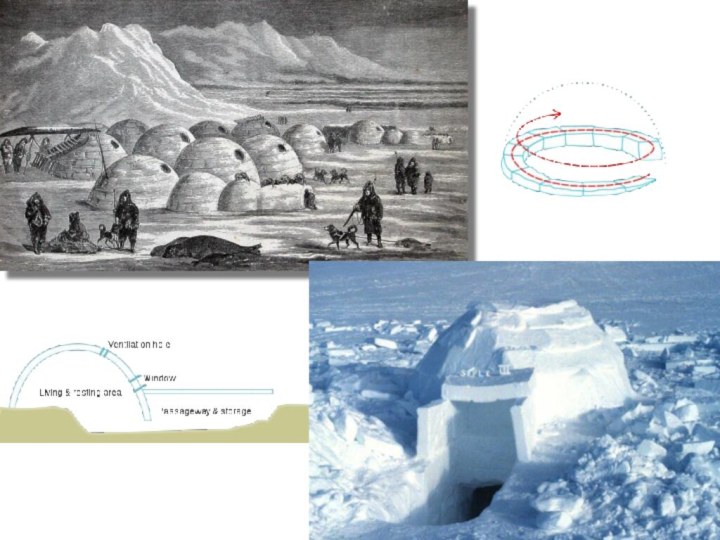
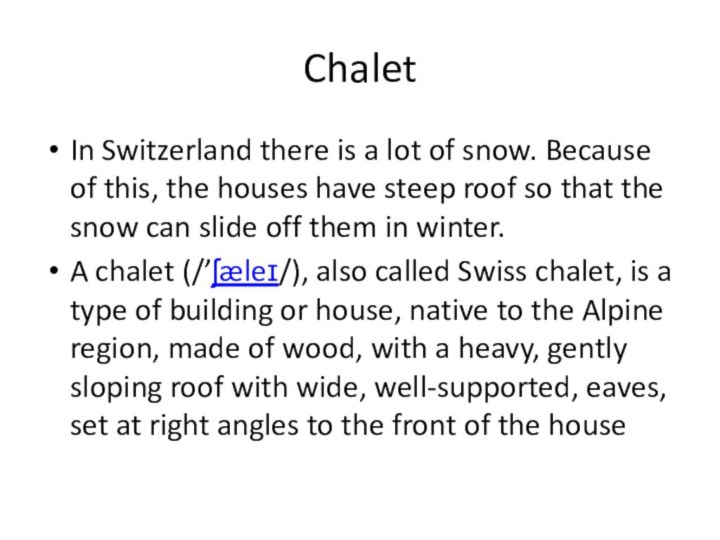
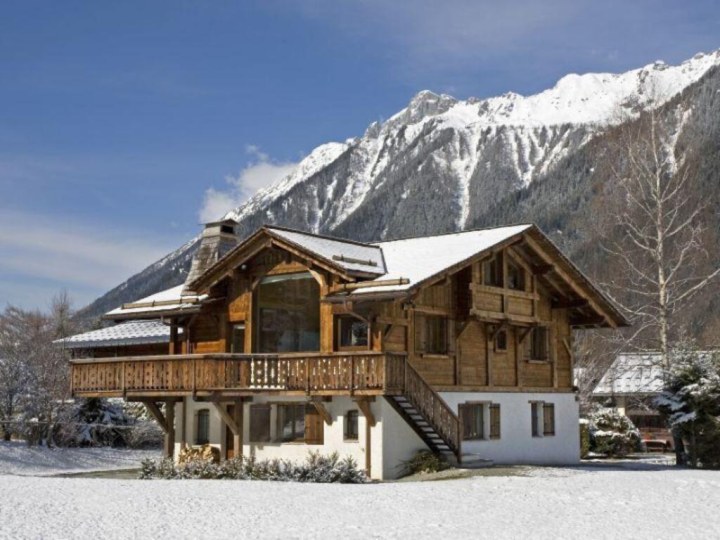
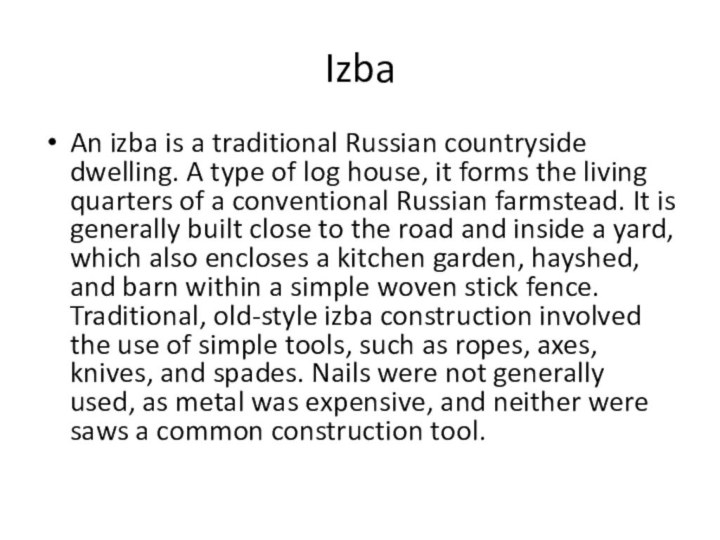
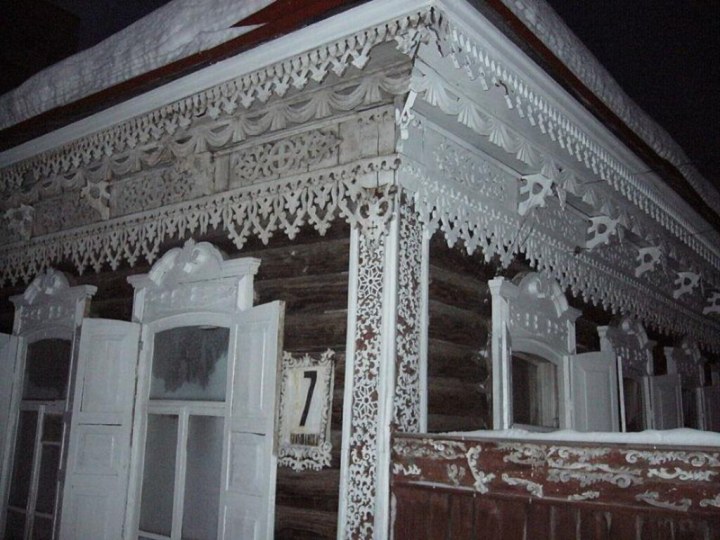
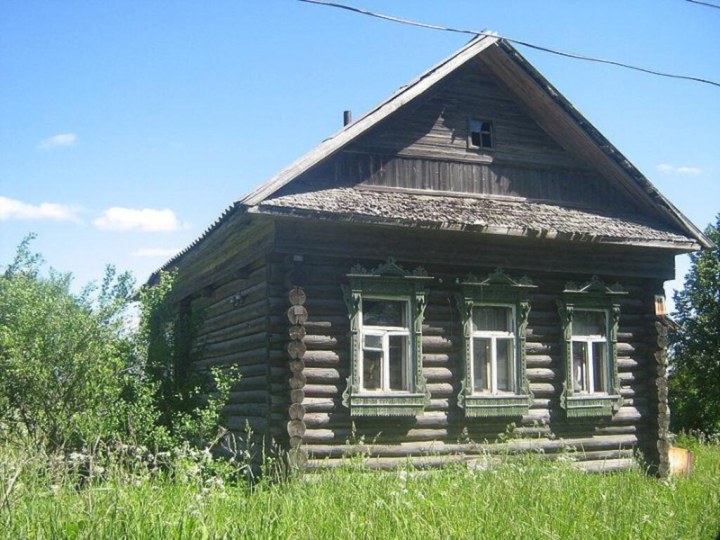
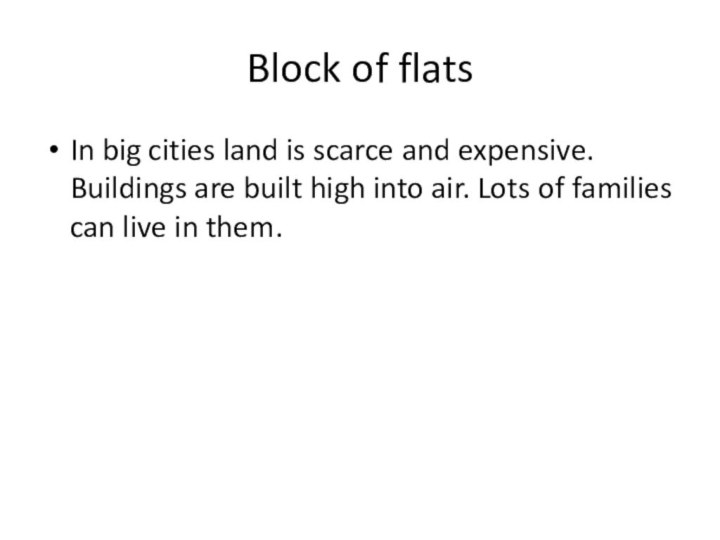
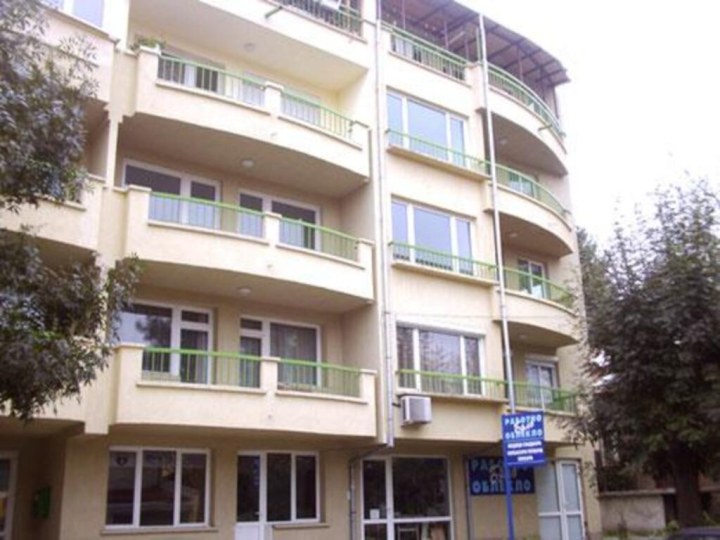
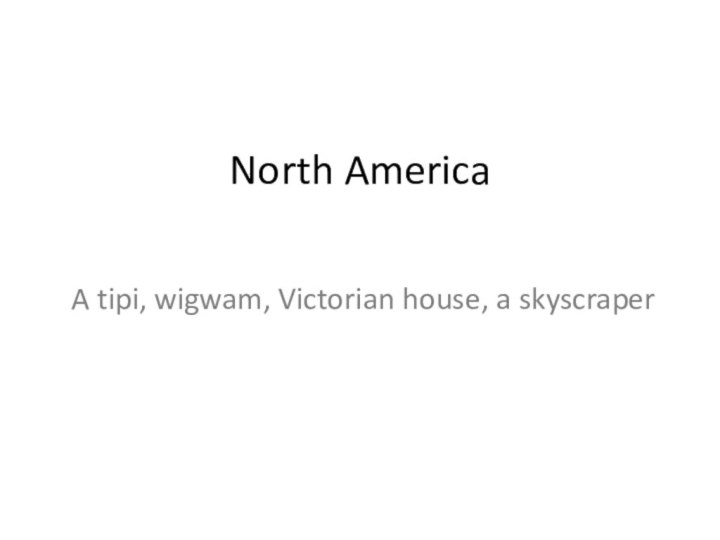
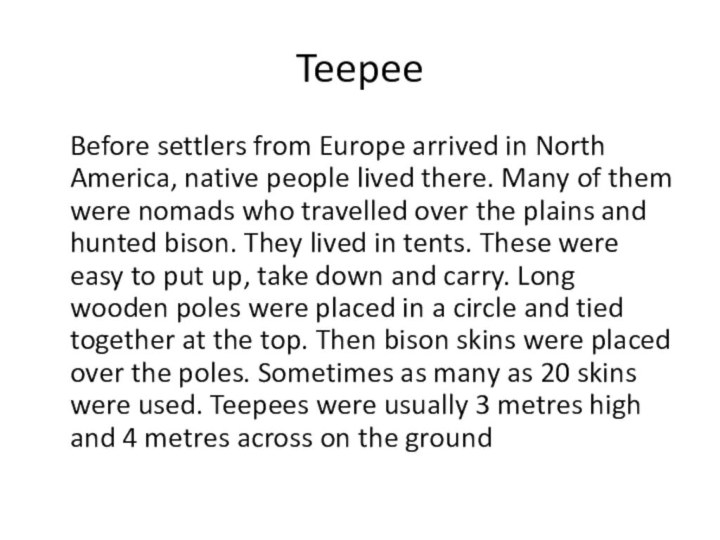
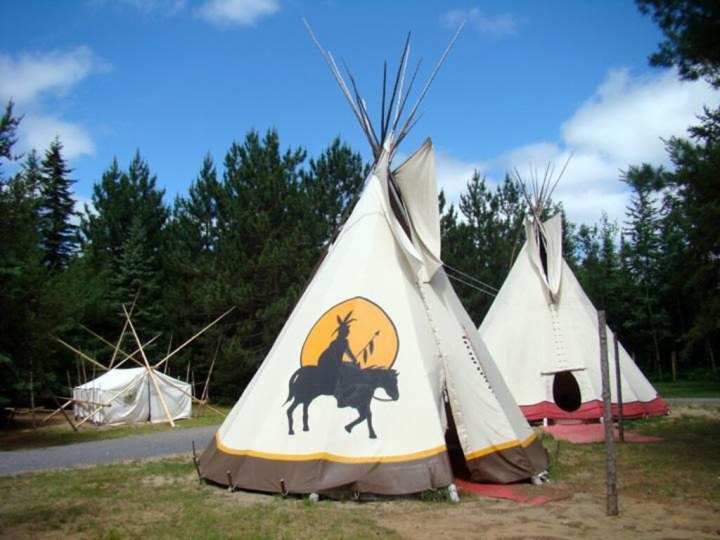
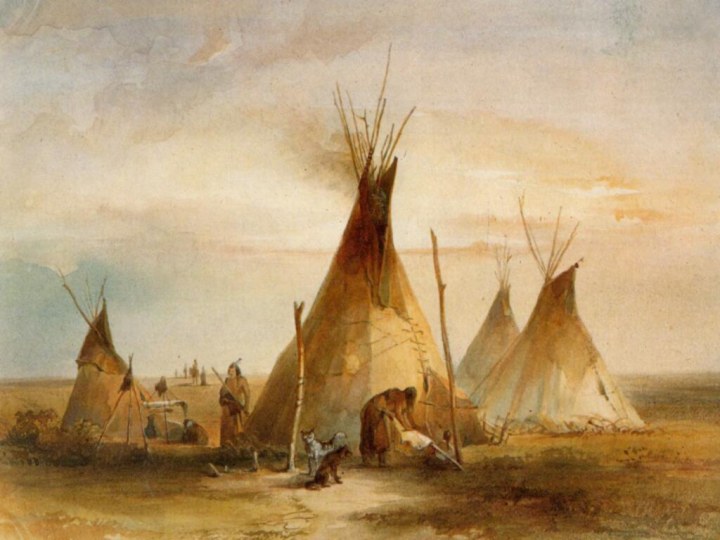
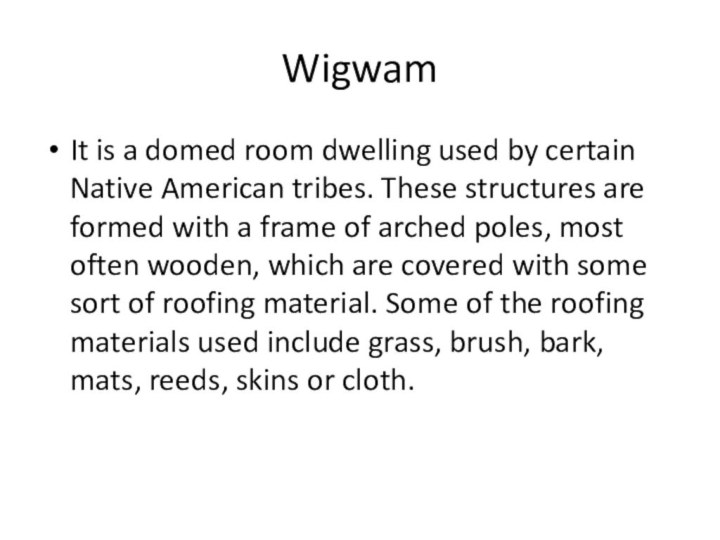
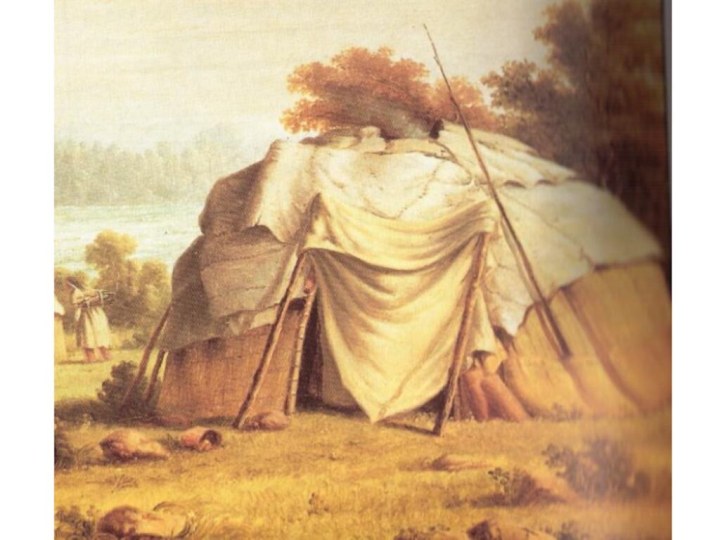
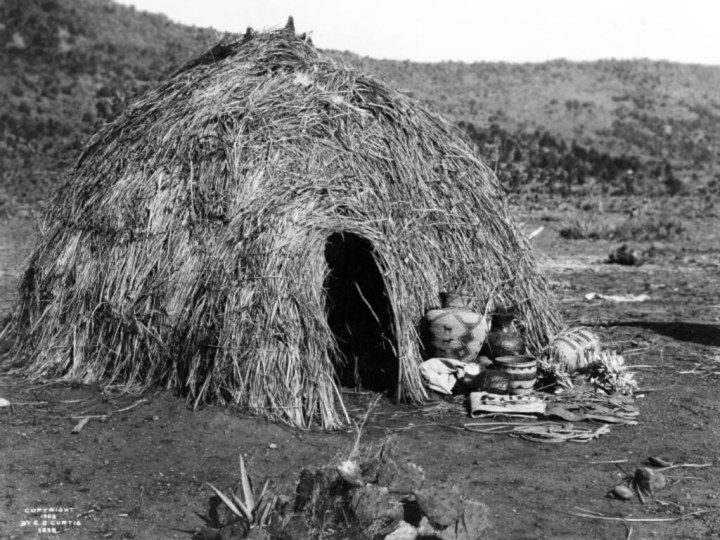
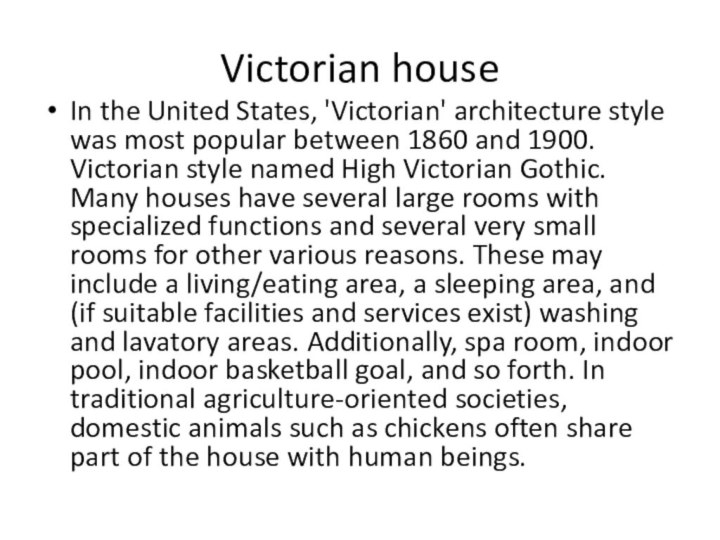
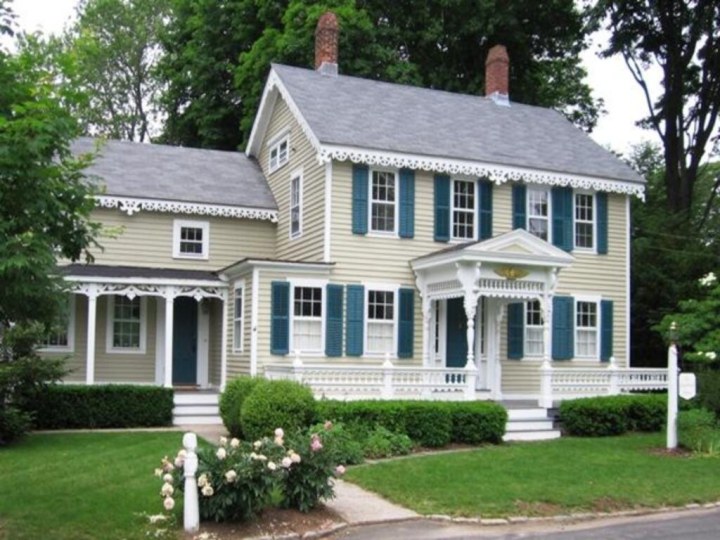
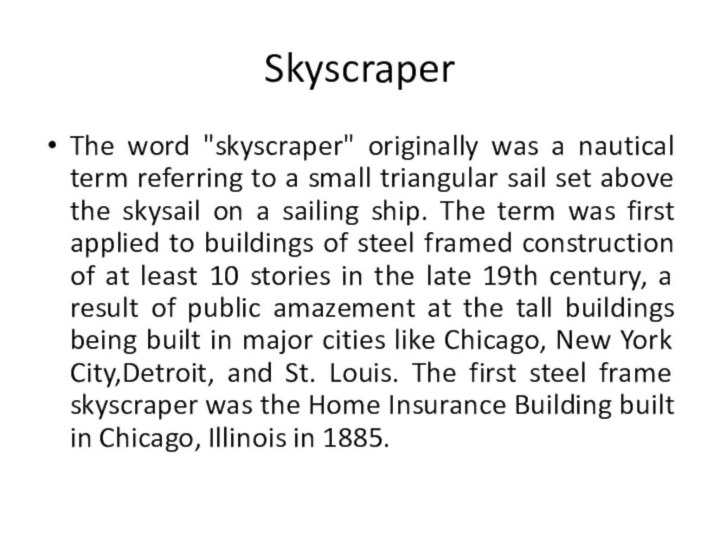


Слайд 4
A yurt
In Kazakhstan people keep goats. Because of
this, people live in tents made from woven goat
hair. The sides can be rolled up to let cool breezes in.
Слайд 6
Stilt houses
In Asia there is a lot of
rain. People build houses on stilts. They are above
the water and don’t flood. In Asia there is a lot of rain. People build houses on stilts. They are above the water and don’t flood. Stilt houses or pile dwellings are houses raised on piles over the surface of the soil or a body of water. Stilt houses are built primarily as a protection against flooding, but also serve to keep out vermin. The shady space under the house can be used for work or storage.
Слайд 8
Palace
A palace is a grand residence, especially a
royal residence or the home of a head of
state. Many historic palaces are now put to other uses such as parliaments, museums, hotels or office buildings.The Chinese palace is designed in regular square grids and arranged in formal layout, consisted of main buildings and numbers of pavilions enclosed within walls. Unlike massive single structured European palace or castle, Chinese palace is a multitude of complexes contains several large and smaller structures with parks and courtyards.
Слайд 11
Igloo
In the Arctic it is very cold and
the snow is very deep. The Inuit people build
houses, which are called igloos, from blocks of snow. These houses are very warm.
Слайд 13
Chalet
In Switzerland there is a lot of snow.
Because of this, the houses have steep roof so
that the snow can slide off them in winter.A chalet (/’ʃæleɪ/), also called Swiss chalet, is a type of building or house, native to the Alpine region, made of wood, with a heavy, gently sloping roof with wide, well-supported, eaves, set at right angles to the front of the house



